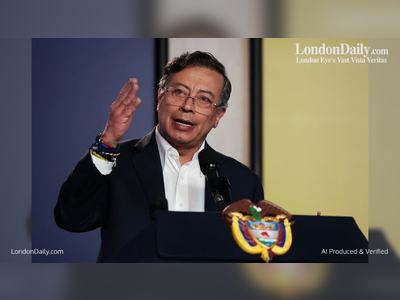U.S. Halts Trade Talks with Canada After Ontario Ad Using Reagan Voice Triggers Diplomatic Fallout
Negotiators from the United States and Canada had spent weeks working toward a potential agreement to roll back steep U.S. tariffs on Canadian steel and aluminium when the process unraveled on October 24, 2025. U.S. President Donald Trump announced via his social media platform that he was “terminating all trade negotiations with Canada”, citing what he described as “fraudulent” interference by the Canadian side. The immediate catalyst was a one-minute television commercial produced by the province of Ontario, which featured archival audio of former U.S. President Ronald Reagan warning that tariffs ultimately harm American workers.
The ad — funded and aired by Ontario in major U.S. markets — sought to persuade U.S. audiences that the 35 per cent tariffs imposed by Washington on Canadian exports risked American jobs. But the use of Reagan’s 1987 radio address sparked outrage in Washington. The Ronald Reagan Presidential Foundation and Institute issued a statement saying the remarks were edited, used without permission and taken out of context, and that legal action was under review.
President Trump characterised the ad as an attempt by Canada to influence pending U.S. Supreme Court cases that will determine the legality of his sweeping tariff programme. He described tariffs as “very important to the national security and economy of the U.S.A.” and cited Ontario’s conduct as “egregious behaviour” justifying the immediate suspension of negotiations.
For its part, Ottawa defended the commercial, arguing that the excerpt was unedited, in the public domain, and wholly legitimate. A spokesman for Ontario’s Premier Doug Ford pointed out that the speech is public-domain, and Canadian officials said they would provide a fuller response.
Prime Minister Mark Carney has not publicly rebuked the ad, but he expressed disappointment at the U.S. decision and reiterated Canada’s openness to resume talks when the United States is ready. However, key meetings scheduled for the coming days are now in doubt.
The breakdown comes at a delicate moment in North American trade policy: the U.S. has already imposed double-digit tariffs on Canadian goods across sectors from steel to autos, citing border and national-security concerns. Canada, heavily integrated into U.S. supply chains under the United States–Mexico–Canada Agreement (USMCA), now faces fresh uncertainty as the bilateral talks collapse once again.
In a rapid response, Ontario announced it will pause the ad campaign while federal and provincial officials assess the situation. The pause may offer a path for diplomacy, but the moment underscores how fragile trade negotiations have become — vulnerable even to a single province’s media strategy. The consequences for Canadian exporters and American industry alike will ripple in the weeks ahead.










